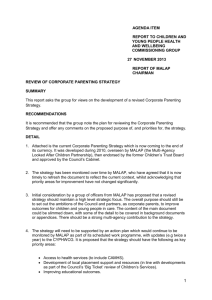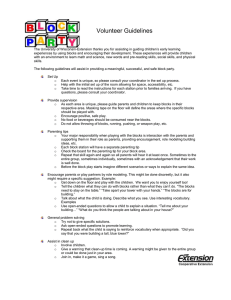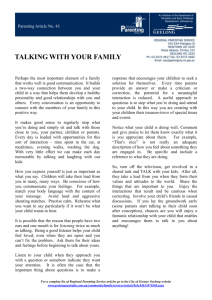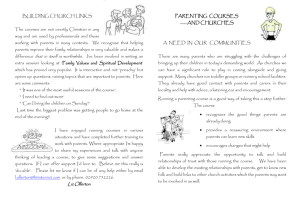Parenting Strategies and Corporate Development Parenting
advertisement
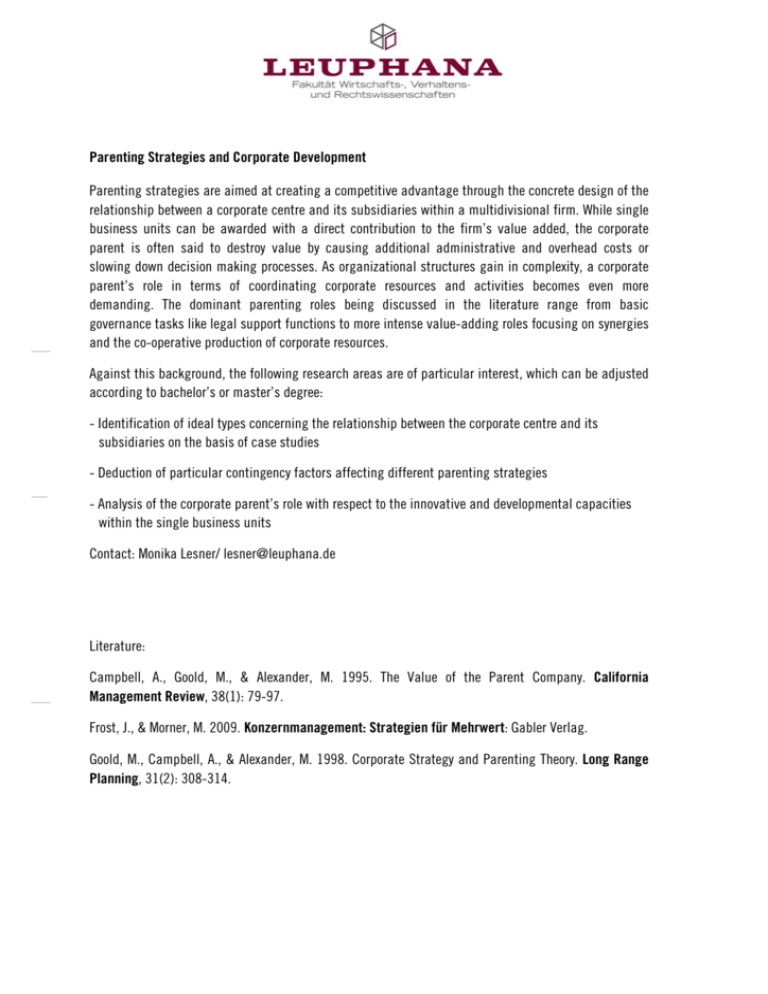
Parenting Strategies and Corporate Development Parenting strategies are aimed at creating a competitive advantage through the concrete design of the relationship between a corporate centre and its subsidiaries within a multidivisional firm. While single business units can be awarded with a direct contribution to the firm’s value added, the corporate parent is often said to destroy value by causing additional administrative and overhead costs or slowing down decision making processes. As organizational structures gain in complexity, a corporate parent’s role in terms of coordinating corporate resources and activities becomes even more demanding. The dominant parenting roles being discussed in the literature range from basic governance tasks like legal support functions to more intense value-adding roles focusing on synergies and the co-operative production of corporate resources. Against this background, the following research areas are of particular interest, which can be adjusted according to bachelor’s or master’s degree: - Identification of ideal types concerning the relationship between the corporate centre and its subsidiaries on the basis of case studies - Deduction of particular contingency factors affecting different parenting strategies - Analysis of the corporate parent’s role with respect to the innovative and developmental capacities within the single business units Contact: Monika Lesner/ lesner@leuphana.de Literature: Campbell, A., Goold, M., & Alexander, M. 1995. The Value of the Parent Company. California Management Review, 38(1): 79-97. Frost, J., & Morner, M. 2009. Konzernmanagement: Strategien für Mehrwert: Gabler Verlag. Goold, M., Campbell, A., & Alexander, M. 1998. Corporate Strategy and Parenting Theory. Long Range Planning, 31(2): 308-314.

